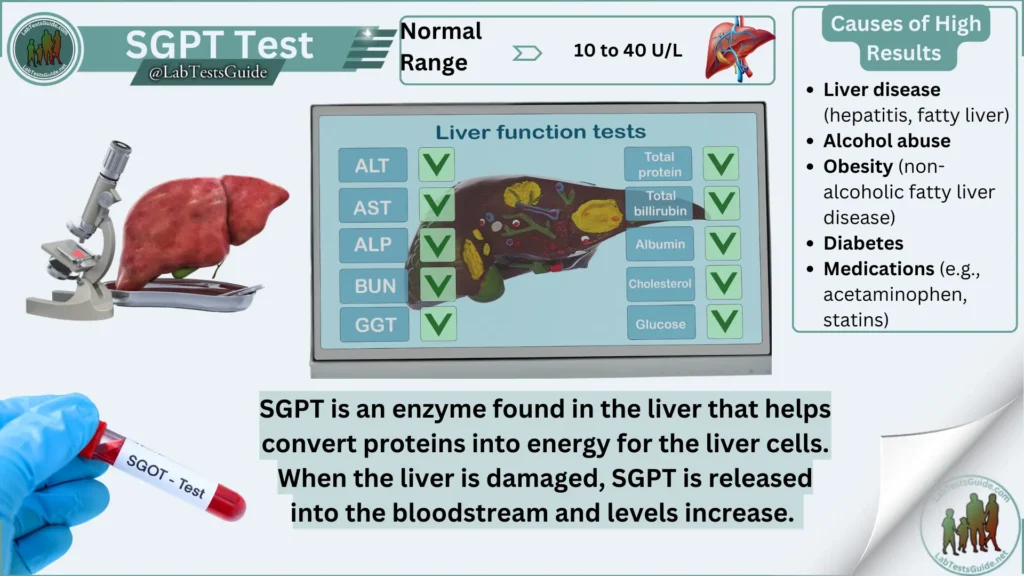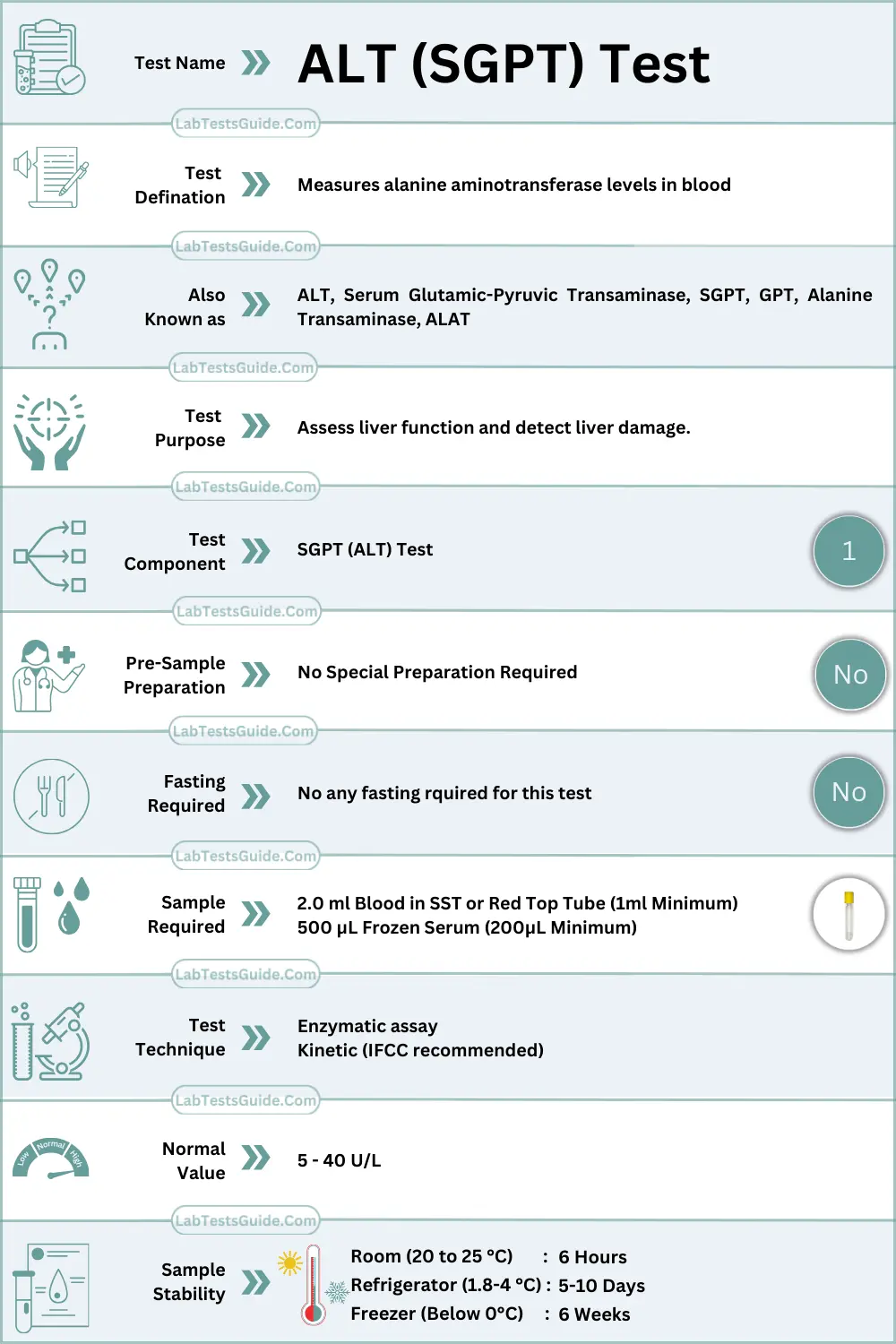SGPT is an enzyme found in the liver that helps convert proteins into energy for the liver cells. When the liver is damaged, SGPT is released into the bloodstream and levels increase.

Also Known as : ALT, Serum Glutamic-Pyruvic Transaminase, SGPT, GPT, Alanine Transaminase, ALAT
Test Panel: Total Bilirubin, Conjagated Bilirubin, Unconjugated Bilirubin, ALT, AST, ALP, Total Protein, Albumin, Globulin, A/G ratio, GGT,

Why Get Tested :
The SGPT test is often recommended in the following situations:
- SGPT diagnose any kind of liver disease.
- to check for damage from liver infections, such as hepatitis B and hepatitis C
- SGPT has done for follow up of the patient on treatment.
- SGPT is done in routine in patients on chemotherapy.
- SGPT may be advised in a patient with treatment on antituberculous treatment.
When to Get Tested :
- if you already have a liver disease, to monitor the disease and how well a particular treatment is working
- if you’re experiencing the symptoms of a liver disorder
- if you have certain medical conditions such as high triglycerides, diabetes, high blood pressure, or anemia
- if you drink alcohol heavily
- if you have gallbladder disease
When SGPT Test Orderd :
A liver panel, or one or more of its components, may be ordered when someone is at risk for liver dysfunction. Some examples include:
- People who take medications that may potentially damage the liver
- Those who are alcoholics or heavy drinkers
- Those who have a history of known or possible exposure to hepatitis viruses
- Individuals whose families have a history of liver disease
- People who are overweight, especially if they have diabetes and/or high blood pressure
A liver panel may be ordered when a person has signs and symptoms of liver disease; however, most people who have liver disease do not have any of these symptoms until the disease has been present for many years or is very severe. Some of these include:
- Weakness, fatigue
- Loss of appetite
- Nausea, vomiting
- Abdominal swelling and/or pain
- Jaundice (yellowing of eyes or skin)
- Dark urine, light-colored stool
- Itching (pruritus)
- Diarrhea
Usually no one single set of liver tests is used to make a diagnosis. Often, several liver panels will be ordered over a few days or weeks to help determine the cause of the liver disorder and evaluate its severity
Sample Required:
- This is done on serum of the patient.
- The Blood sample can be taken at any time.
- The fasting sample is not necessary.
- Analyze the enzyme on the same day because the enzyme activity is lost at room temperature.
- The sample can be stored at 4 °C for 1 to 3 days.
Precautions For Sample:
- Avoid hemolysis, because RBC contains increased SGPT and SGOT.
- Drugs that may increase the SGPT value are like acetaminophen, aminosalicylic acid, ampicillin, allopurinol, cephalosporin, chlorpropamide, clofibrate, cloxacillin, codeine, indomethacin, INH, Methyldopa, methotrexate, nalidixic acid, quinidine, phenylbutazone, phenytoin, salicylates, tetracycline, and propanol.
- Ideally perform the test as soon as possible or on the same day. Because the storage of the sample is not satisfactory.
Normal Value :
| Age | Male U/L | Female U/L |
| Newborn to 1 Year | 13 to 45 | 13 to 45 |
| Morethen 1 Year | 10 to 40 | 7 to 35 |
The increased SGPT level is seen in:
- Viral hepatitis. There is markedly increased the level.
- Drug-induced hepatitis.
- Chronic hepatitis.
- Infectious mononucleosis.
- Intrahepatic cholestasis.
- Cholecystitis.
- Active cirrhosis.
- Metastatic tumors of the liver.
- Obstructive jaundice.
- Alcoholic cirrhosis.
- The mild increase is seen in :
- Myosotis.
- Pancreatitis.
- Myocardial infarction.
- Shock.
- Infectious mononucleosis.
Related Tests:
Theses tests to be tested in Liver Function Tests (LFT’s) :
- Total Bilirubin
- Conjugated Bilirumin
- Unconjugated Bilirubin
- ALT (SGPT)
- AST (SGOT)
- Alkaline Phasphatase
- Total Protein (TP)
- Albumin
- Globuline
- A/G Ratio
- Gamma GT (GGT)
Possible References Used




One Comment